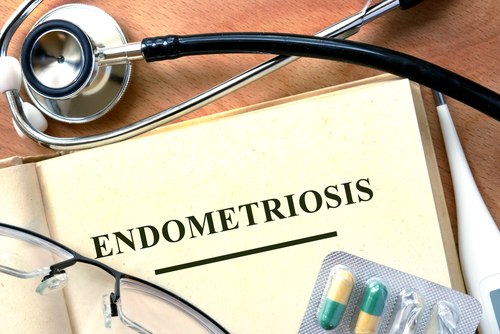A mouse study showed that chronic stress can promote the development of endometriosis and increase levels of stress-related biological markers in the endometrial tissues, brain, and bloodstream. Researchers suggest that stress might be a modifiable risk factor for endometriosis, possibly through the use of anti-depressants.
The study, “Social psychogenic stress promotes the development of endometriosis in mouse,” was published in the journal Reproductive BioMedicine Online.
The research also showed an increase of adrenergic receptor β2 (ADRB2), a cell surface protein known to be responsible for stress-induced tumor development and metastasis in mice.
For this study, scientists used 33 virgin mice which were subdivided into four groups: nine were stressed; eight were unstressed; eight were in the control group; and eight were in the sham group.
The stressed and unstressed groups initially underwent endometriosis-induced surgery; the sham group underwent a “false” surgery to mimic an endometriosis condition; and control mice received no treatment.
A predatory stress model was used to induce only social psychological stress versus nonsocial stress, such as swimming or restraint. Mice in the stressed group were exposed to one of three male cats every other day for two weeks, beginning with the second day after surgery.
At the end of two weeks, samples were taken from the endometrial tissues and the hippocampus, an area in the brain particularly sensitive to stress, and were selectively stained for ADRB2 and other known stress indicators.
Results showed an increase in corticosterone (a stress hormone), plasma levels, and lower body weight in the mice under chronic stress, and biomarkers for stress were also shown to be significantly higher. Altogether, these results demonstrate that the chronic stress was psychologically stimulated and not caused by the original introduction of endothelioma (the tumor) or other stimuli.
Immunohistochemical staining revealed an increase in ADRB2, strongly indicating angiogenesis (development of blood vessels) and platelet aggregation, a mechanism previously implicated in endometriosis development.
The researchers also looked at human ovarian endometrioma samples taken from 21 volunteer patients and 25 control patients free of endometrial abnormalities. They discovered an increase in ADRB2, and also that size and severity of dysmenorrhea (painful menstruation) were significantly associated with ADRB2 lesional staining levels.
According to the researchers, “stress may be a modifiable risk factor for endometriosis, and deactivation of the adrenergic signaling pathway may be a potential target for intervention to forestall the promotional effect of stress.”
The authors raised the possibility of prescribing anti-depressants in cases of intense and chronic stress to curtail the effects of stress on endometriosis.

